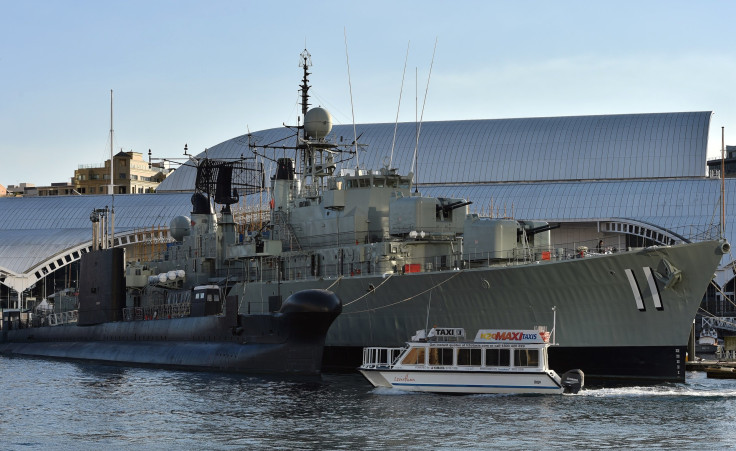Germany Talks Up Submarine Bid For Australia, Says Canberra May Risk Chinese Relations If Deal Goes To Japan

A German executive bidding to win the lucrative contract to make submarines for Australia said Thursday that awarding the contract to Japan may trouble Canberra’s relationship with China, Australia's biggest trading partner. Germany’s ThyssenKrupp Marine Systems is currently fighting for the contract against Japan's Mitsubishi Heavy Industries and French company DCNS to build 12 conventional submarines, whose cost is estimated by the Australian navy to be at least 56 billion Australian dollars ($43 billion).
Given its close relationship with the U.S. and Australia, Japan was considered a favorite during the early bidding process. ThyssenKrupp’s Chairman Hans Christoph Atzpodien described the bid by Japan as a choice for Australia between its relationships with China and Japan, Australia’s second-biggest trading partner, the Associated Press (AP) reported.
“Maybe it is an advantage dealing with us not to be in a position where you have to — let's say — decide between certain heavyweights of the Pacific area,” Atzpodien told Australia's National Press Club, according to AP.
Germany is proposing to build a variation of its Type 214 submarine, named Type 216, that would take into account Canberra’s long-distance needs. Atzpodien also said Thursday, according to AP, that the company could build all 12 submarines in Australia for about 20 billion Australian dollars ($15 billion) — less than half the cost that Australia had estimated.
The German company has become the first bidder to publicly endorse construction in Australia as the best option, Reuters reported. Germany, Japan and France were required to come up with three proposals for the construction — in Australia, outside Australia and a mixture of the two. The deal is reportedly the world’s most lucrative defense contract, Reuters reported.
“An all-Australian build is the best option for Australia as it offers the most efficient and lowest-cost approach,” Atzpodien said, according to Reuters, adding: “It has become quite clear to us that Australia has the local engineering and technical skills as well as capacity to help build the new submarine fleet.”
While Germany is trying to give reasons for why it should win the bid, France sent a group of executives from corporate giants like Airbus, BNP Paribas and Thales, among others, to Canberra to explain the benefits of giving the deal to France, Reuters reported.
Last month, Australia said in a long-awaited white paper it will increase its defense spending by about 30 billion Australian dollars ($22.81 billion) in order to protect its strategic and trade interests in the Asia-Pacific region, Reuters reported.
The decision to award the deal will also be politically sensitive, since it comes ahead of a national election, and the contract is linked to the jobs it would potentially create.
© Copyright IBTimes 2024. All rights reserved.












